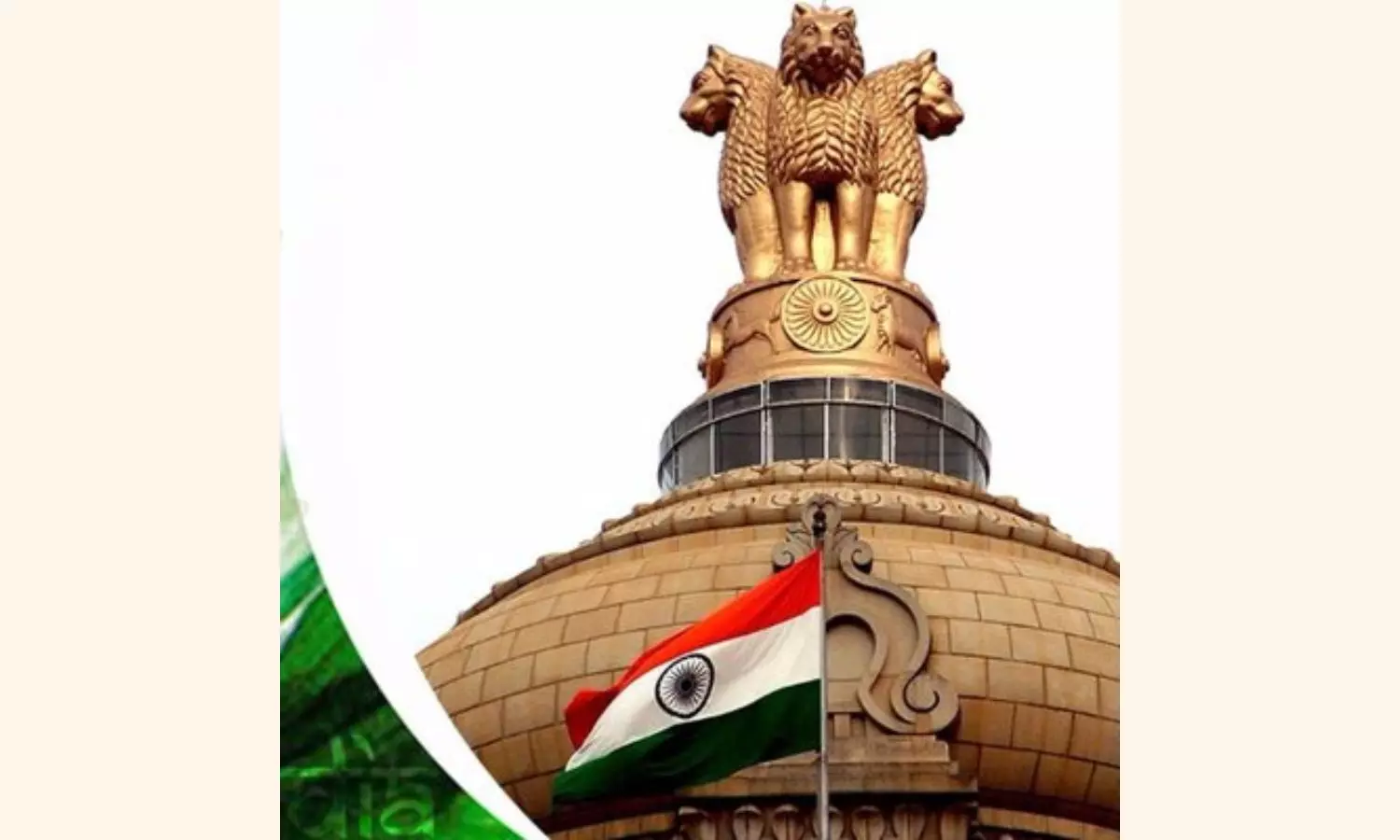Taking pre-emptive and timely decisions to maintain price stability: Centre

New Delhi: The Centre is closely monitoring the prices and availability of essential food commodities to ensure affordability to the consumers and to maintain a stable price regime, according to Ministry of Consumer Affairs, Food and Public Distribution.
The production of pulses and onion in 2024-25 is estimated to increase over last year due to good monsoon rains and favourable weather condition. Tur production is estimated to be 35.02 LMT which is 2.5 per cent higher by last year’s production of 34.17 LMT. Department of Agriculture and Farmers Welfare has issued sanctions for procurement of Tur during current marketing season.
Chana and Masur production is expected to be good on account of good sowing and favourable soil moisture and weather condition. Kharif Moong production is estimated to be 13.83 LMT, higher by 20 per cent compared to previous year production of 11.54 LMT.
Kharif and Late Kharif onion production has been estimated to be good on account of higher sowing. Similarly, the Rabi onion sowing has been progressing well. Similarly, sowing of potato has been reported to be progressing well with to favourable climatic condition.
The calendar year 2024 came to a close with December retail inflation rate of 5.22 per cent which is significantly lower than the year’s peak of 6.21 per cent in October. Food inflation had also moderated in December to 8.39 per cent from 10.87 per cent in October.
When compared with previous years, the annual average retail inflation rate of 4.95 per cent in 2024 is lower than rates for previous two years which were 6.69 per cent in 2022 and 5.65 per cent in 2023. In retrospect, one can say from food price management point of view that the year 2024 had been navigated reasonably well despite several challenges.
The impact of El-Nino phenomenon in 2022-23 and 2023-24 had resulted in two consecutive years of below average production of major pulses like Tur, Chana and Urad due to deficient and erratic monsoon rains in pulses growing states. Taking advantage of India’s low stock position, instances of trade disruptions and speculative trade by certain players add to the challenge of maintaining price stability.
Steep decline in domestic onion production in 2023-24 by about 20 per cent over the previous year together with surge in international prices posed immense challenge in maintaining onion prices. A marginal decline of five per cent in potato production in 2023-24 led to elevated price level throughout the year because of higher demand triggered by dipped in supply of green vegetable due to prolonged pre-monsoon heat wave.
To meet the challenging situation, the government took several pre-emptive and timely decisions for maintaining price stability taking into account the interest of the consumers as well as the farmers. These decisions include measures to incentivise domestic production, import and export policies to ensure overall availability and affordability of essential food commodities.
In order to incentivise domestic production of pulses, the Department of Agriculture and Farmers Welfare removed the procurement ceiling under Price Support Scheme (PSS) for traditionally imported pulses viz., Tur, Urad and Masur, thereby guaranteeing 100 per cent procurement at MSP in respect of these crops during 2024-25.
Pre-registration of farmers for assured procurement was taken up by NCCF and NAFED which include distribution of seeds and organising awareness programmes in districts beyond the traditional pulses growing areas. Further, the Department of Consumer Affairs, in coordination with Department of Agriculture & Farmers Welfare and Department of Land Resources (DoLR) identified areas where Model Pulse Villages and Watershed Development Programmes overlapped for encouraging pulses cultivation.
To augment domestic availability, duty free import policy for Tur, Urad and Masur had been extended till March 31 2025. Duty free import of Yellow Peas has been allowed till February 20, 2025 to ensure overall pulses availability and affordability; and to address the specific shortfall in domestic Chana production, duty free import of Chana had been allowed from May, 2024 till March 31, 2025. In order make direct impact on retail prices of dals, the government continued the sale of Chana Dal, Moong Dal and Masur Dal under the Bharat brand and hold regular interactions with Retailers Association of India and organised retail chains. These measures had helped in bringing down the CPI pulses
In case of onion, government procured 4.7 LMT of Rabi-2024 onions for the buffer stock. The average procurement price of Rs.2,833 per quintal in 2024-25 had been higher than the procurement price of Rs.1,724 per quintal last year which benefited the onion farmers.
Onions from the buffer were released from September to December, 2024 through retail outlets and mobile vans at Rs.35 per kg to consumers and also through open market disposal to augment the supply in major consumption centres.
Considering the shortfall in onion production, the government had calibrated the onion export policy to ensure the domestic supply – export had been prohibited from 8th December, 2023 till May 3, 2024; then allowed with MEP of USD 550 per MT and 40 per cent export duty from May 4 to September 12, 2024; and subsequently the MEP was removed and export duty reduced to 20 per cent from September 13 onward.
The current policy has facilitated increased export despite comparatively higher mandi prices throughout the year. The monthly quantities of onion export increased from 0.72 LMT in September to 1.68 LMT in December, 2024.

